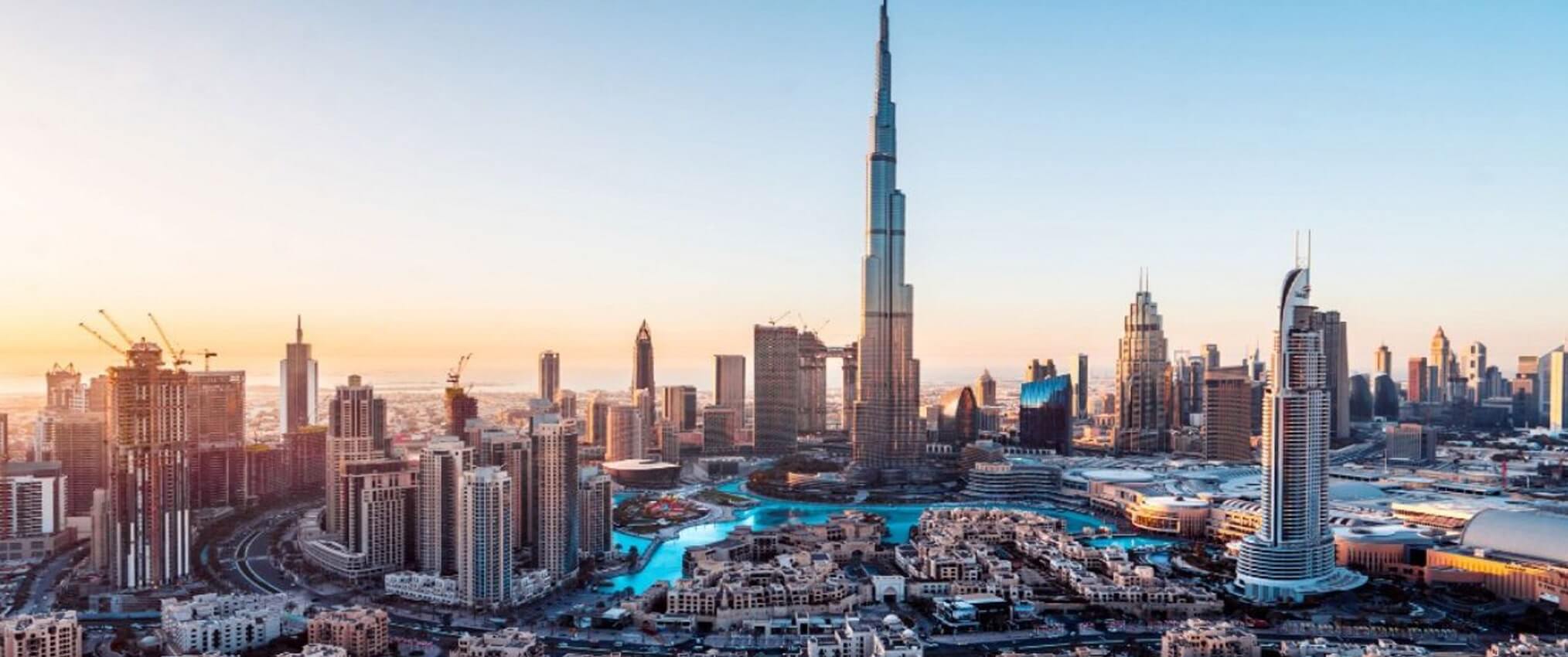Glistening Dubai – Center for Arab World’s Tech Industry
Dubai may be known for its glitz and glamor, high-rise buildings, and sun-drenched beaches, but it’s also becoming a major player in the world’s tech industry. Dubai has long been known as an oasis of commerce and culture in the Arab world. But now, it’s attracting a new kind of attention: that of tech-savvy entrepreneurs, who see the city as a hub of innovation. Dubai, one of the seven emirates that make up the United Arab Emirates (UAE), has been quietly making a name for itself as a technology hub. In the past few years, it has attracted several international tech companies like Amazon and Google to open offices there, as well as leaders in networking, software, and e-commerce like Cisco, Microsoft, and Dell.

In Dubai, the future is now.
The city-state has invested heavily in incubators and accelerators to help get fledgling companies off the ground; helped build up an infrastructure of venture capital firms to finance them; used government contracts to help start-ups land their first big clients; and created co-working spaces where entrepreneurs can meet potential partners or investors. Retailers from Apple to Zara have set up shop in the city’s malls, which draw 50 million visitors a year. Hotels like the Burj Al Arab and Atlantis, The Palm compete for tourists who flock to see the futuristic architecture that defines Dubai’s skyline. The emirate also has a burgeoning tech sector that’s attracting entrepreneurs from all over the world eager to build the next billion-dollar startup and investors interested in early-stage companies.
Investments in Dubai’s Tech Domain
Dubai, whose borders were open even in the face of the pandemic, attracted an increasingly mobile international workforce. Its relaxed virus policies, low taxes, and relatively light business regulation created an attractive environment for technology startups. In addition to this, international venture firms including SoftBank Group Corp. and Sequoia Capital have invested in Dubai’s tech startups.
In 2020, the United Arab Emirates struck a deal with Israel, known as the Abraham Accords, which created opportunities for Dubai to make connections with the already-established tech hub in Tel Aviv. Israeli companies are expanding and picking Dubai for their first regional outpost.
Last year, investors poured more than $2.87 billion into tech startups in the Middle East and North Africa, excluding Israel, quadrupling the $654 million invested in 2020. Of that investment, about half went to the United Arab Emirates, according to Dubai-based Wamda, a research platform. Three UAE-based startups—Kitopi (which offers cloud kitchen services), Vista Global (which provides private aviation services), and Emerging Markets Property Group (owner of classified listing websites)—each surpassed $1 billion in value. The latter two are based in Dubai.
California-based venture capital firm Sequoia Capital India has helped produce its first investment in the Gulf region with a $33 million early-stage investment in Saudi Arabia-based FinTech startup Lean Technologies Ltd.
Investors have historically shied away from Arab countries due to their frequent conflicts and the lack of venture-capital investments. However, that has changed in recent years—with Saudi Arabia’s decision to open up economically and socially—and there is now a growing interest in investing in Arab startups. According to Start-Up Nation Central, Israeli startups attracted more than $25 billion last year alone.
Home to Tech Companies
The United Arab Emirates is seeking to lure technology companies and investors with an offer of 100,000 “golden visas”—permits that allow entrepreneurs and investors to live in the country for up to 10 years—longer than regular visas. The Emirates have also set up a national small-business program to help startups find funding, partner with established companies and market their products overseas.
Launched a National Programme for Coders with Big Tech Companies
Sheikh Mohammed bin Rashid al-Maktoum launched a national program to launch 1,000 tech companies and increase start-up investments by $1 billion. The program, which is in cooperation with Google, Microsoft, Amazon AWS, Cisco, IBM, HPE, LinkedIn, Nvidia, and Facebook aims to train 100,000 coders and establish tech companies that will go global.
Paperless or Digitized Industry
Dubai’s commitment to paperless documentation is exemplified by Dubai Paperless Strategy, an initiative of Dubai Smart Government launched by Crown Prince of Dubai and Chairman of Dubai Executive Council, Sheikh Hamdan bin Mohammed bin Rashid Al Maktoum: a stamp is awarded to government entities that have fully implemented a paperless strategy.
The objective of this strategy is to save more than a billion papers used in Dubai Government each year, which in turn would save 130,000 trees and more than AED900 million in paper costs. In addition, Dubai’s visitors and residents are set to save 40 hours a year in form-filling time.
The latest government department to be awarded the ‘100% Paperless Stamp’ is Dubai Customs. By using electronic archiving, digitizing training materials, adopting online surveys and encouraging clients to use smart channels for transactions, it reduced the consumption of printing paper by 50% in 2019, a figure that increased to 97% by 2020, and then 100% by 2021.
If you wish to embrace digitization in your business or reduce the paper works, send us your project details to [email protected]


